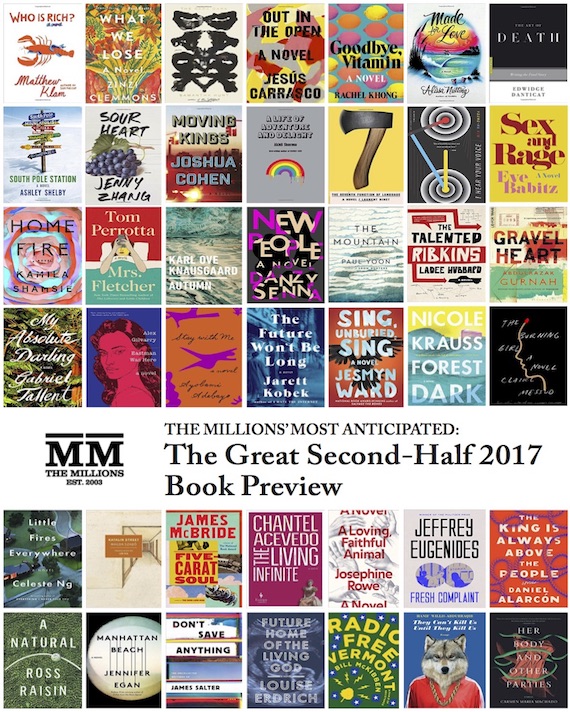This week at The Millions, we’re attempting to gather some of our thoughts about the transformation of book coverage in the digital age. On Wednesday, Garth looked at the death of the newspaper book review section. Yesterday, Max considered the revenue problems facing literary websites… and the vices and virtues of one of the solutions. And in today’s final installment, Max will hazard some early guesses about the next possible upheaval in the economy of literary journalism: the e-book reader.
I.
 Yesterday, we looked at some of the revenue sources available for literary sites and why Amazon’s affiliate program, despite its flaws, is often a better option than standard advertising and affiliate programs run by other booksellers. But Amazon links – and the implied endorsement that comes with them – present new problems, making Amazon ever bigger and more central to a book industry that for readers and writers may be better off fragmented. What’s now known as #Amazonfail offers a perfect example of what readers and writers have to lose from an Amazon-dominated book industry. Patrick recently outlined on his Vroman’s Blog why the threat that Amazon poses is one of control and not censorship per se. Ultimately, the Amazon experiment may prove unsustainable, and the viability of online book coverage may come to rest on a more robust and more serious advertising model than is currently available.
Yesterday, we looked at some of the revenue sources available for literary sites and why Amazon’s affiliate program, despite its flaws, is often a better option than standard advertising and affiliate programs run by other booksellers. But Amazon links – and the implied endorsement that comes with them – present new problems, making Amazon ever bigger and more central to a book industry that for readers and writers may be better off fragmented. What’s now known as #Amazonfail offers a perfect example of what readers and writers have to lose from an Amazon-dominated book industry. Patrick recently outlined on his Vroman’s Blog why the threat that Amazon poses is one of control and not censorship per se. Ultimately, the Amazon experiment may prove unsustainable, and the viability of online book coverage may come to rest on a more robust and more serious advertising model than is currently available.
In the world of books, Amazon has a massive footprint. Even as other book retailers – chain and indie – have struggled to stay afloat, Amazon has used its heft in other product categories to treat books as a loss leader and consolidate its hold on that market. A pair of surveys in 2008 put online book sales at between 21%-30% of total U.S. book sales, with the assumption being that the lion’s share of those online sales belonged to Amazon. In a market as fragmented as books, that’s a big number. And as Patrick points out, monoculture (or as we used to call it in econ class, monopoly) can cause problems for those stakeholders we discussed yesterday. The NYTBR’s stakeholders can publicize, read about, and review books elsewhere, but amid tough times for bookstore chains and many indies, Amazon may be the only viable option for many readers. For authors, readers, and publishers of the books impacted by the recent “glitch,” the potential dangers of Amazon’s outsized position became glaringly obvious. Regardless of whether the “glitch” was intentional, the result of a poorly constructed classification system, or just plain bad luck, it is the sort of thing that can all too easily waylay stakeholders in a market controlled by a single giant.
II.
From the standpoint of readers and those concerned with freedom of expression, last week’s “glitch” was alarming, but from the standpoint of someone tracking the role played by Amazon’s Associates Program in the business model of book- and culture-focused sites, another effect of Amazon’s large footprint has become a source of even more consternation.
 We’ve written at length about the Kindle here at The Millions over the last two years. To the extent that there is a debate about the experience the device offers, we haven’t taken sides, but as we have observed how Amazon has treated the device within the Associates program, we have come to understand the huge land-grab the Kindle represents.
We’ve written at length about the Kindle here at The Millions over the last two years. To the extent that there is a debate about the experience the device offers, we haven’t taken sides, but as we have observed how Amazon has treated the device within the Associates program, we have come to understand the huge land-grab the Kindle represents.
In short, by making it possible for Kindle users to buy Kindle ebooks via the device itself, Amazon has cut middlemen out of the picture. The Associate’s commission depends on a click in a browser. For ebooks bought via Kindle, there is no click. And, just to be certain that intermediaries are cut out of the Kindle food chain, Amazon recently made another, symptomatic adjustment to its Associates Program. In February, the same month that Amazon launched the Kindle 2, Amazon quietly stopped paying Associates commissions on Kindle ebooks bought via the web. (Unsurprisingly, Amazon still pays a healthy bounty on Kindles sold. The calculus is clear. Sell more Kindles and sell more books via a vertically integrated system that only Amazon controls.) Like Apple’s iTunes ecosystem in the era of digital rights management, Amazon’s Kindle represents a bid to control distribution of a new and closed digital format that is only compatible with Amazon-approved devices. If, as has largely been the case with music, books are increasingly distributed digitally, Amazon’s position in that market could become huge. [Update: Subsequent to the publication of this piece, Amazon resumed paying commissions on Kindle books bought through the website, though commissions are not earned on ebooks bought through the Kindle device.]
The company’s early move to lock Associates out of commissions on ebooks is just a taste of what Amazon could do with a dominant position in the emerging ebook market. (Consider, for example, the recent news that a banned Amazon account also disables the Kindle. And separately, after cornering the market on ebooks, Amazon can set the prices it wants to charge for them.) For book sites pursuing affiliation as a revenue option, it also offers a scary prospect: that the revenue earned from Amazon’s program will slowly dwindle in inverse proportion to the popularity of Kindle ebooks.
Some will argue that the Kindle ebook market is currently too small to matter, but the Kindle may be rapidly gaining steam. We recently observed the massive ramp up in Kindle ebooks bought by readers of The Millions since the launch of the Kindle 2. And TechCrunch recently reported that Amazon may have sold 300,000 Kindle 2s in a little over two months since the Kindle 2 was unveiled – a stunning rate in comparison to the 400,000 Kindles sold during the 15-month lifespan of the first generation device.
As all of this has come into focus for us, it’s become easier to envision a time when it would no longer make sense for The Millions to link to Amazon. If it comes to pass that people who shop at Amazon for books tend to prefer Kindle ebooks, it would be pretty silly for us to keep linking to the Amazon pages for the physical copies of books. And why link to the Kindle ebook page when we could link to a commission-generating page at Powell’s or IndieBound? Even considering the point we made yesterday about big-ticket items, we are a site that covers books and appeals to avid readers, and most of the commissions The Millions earns via the Amazon program are earned on books. There are many other literary and culture-oriented sites that fit this same profile and link to Amazon. If Amazon’s evolution closes the door on these sites, it will make it all the more difficult for these sites to become economically viable and it will be a blow to literary and culture discussion on the web. On the other hand, it will be an opportunity for indies to compete with Amazon.
III.
 One of the key points tucked away in yesterday’s installment was that, even as the business model of book coverage in print fails and online coverage rushes to fill the void, there’s nothing keeping online coverage from the fate that has beset print coverage.
One of the key points tucked away in yesterday’s installment was that, even as the business model of book coverage in print fails and online coverage rushes to fill the void, there’s nothing keeping online coverage from the fate that has beset print coverage.
In light of everything that’s going on with the Kindle, a decentralized alternative to Amazon’s Associates program, like the one that IndieBound has been ramping up, becomes more intriguing, but such alternatives have a long way to go before they can offer a value proposition that can compete with the incumbent.
A better, far more realistic, and completely obvious solution for supporting book coverage online is advertising – whose current inefficacy, you may remember, was what made Amazon attractive in the first place. In theory, two factors recommend online advertising to potential advertisers and marketers. The infrastructure is already there – building an affiliate program from scratch is no easy task nor is it a sensible option for many advertisers – and it’s much cheaper than trying to reach a similar audience via print advertising.
If the email inboxes of Millions contributors are any indication, there is currently plenty of interest in reaching a readership like that of The Millions, but not much interest in paying for it. There are always going to be books that don’t jibe with our editorial focus, but we have no such restrictions on advertisements. (This isn’t to say that any serious book journalist doesn’t welcome a well-targeted email.)
In his part one of this series, Garth noted how the conglomerated publishing industry has shelled out less and less money for the advertisements that support The New York Times Book Review and other, now defunct, book review sections. Perhaps part of that same cash-saving strategy has been to make scattershot pitches to bloggers in order generate some free publicity. But as Garth also discussed, the quality and readership of book coverage offered by the top bloggers and a number of impressive new online magazines is only increasing. Meanwhile, no longer the new kids on the block, as these sites professionalize further and their own editorial voices mature, they rely less on these pitches to shape coverage. The publishing industry can either try to reach the readers of these sites through advertising, or it can allocate money and time trying to cajole coverage out of increasingly inundated writers and editors. (Our own biggest advertiser, via the blogads at right, is Xlibris, the self-publishing outfit.) By getting serious about supporting book coverage online as it once did in print, publishers can hope to enjoy the same symbiotic relationship that Amazon now has with thousands of small sites.
However, we shouldn’t expect an increasingly struggling publishing industry to shoulder the load. When I worked with Bud Parr on the short-lived literary blog ad network Brainiads, the holy grail was securing advertisers from outside the publishing industry. Brainiads wasn’t able to meet this goal. So far, this development hasn’t materialized elsewhere and, in all likelihood, will be delayed by the current economic downturn. This isn’t to say it can’t happen, however. The audience for online book coverage is actually quite attractive for many advertisers, generally well educated and well off, and in the most likely scenario, some enterprise will make good on what Brainiads hoped to do (it occurs to me that the NYT would be an intriguing candidate), and, with a dedicated sales force, will reach out to companies to offer ads on a basket of book- and culture-focused sites with an attractive readership.
Until that day, book coverage online will remain rather precarious, for better as well as for worse. For smaller blogs, it is often largely a labor of love. For mid-sized, independent sites, the business model rests on flawed options like Amazon’s program and piecemeal revenue via existing ad networks. At the largest sites, including the online arms of venerable institutions like the NYTBR, book coverage depends on the dwindling profitability of news corporations as a whole.
 Even 15 years in, the web is still the wild west. There aren’t a lot of rules, and literary sites have adapted and experimented in order to find a model that works. Now, even as much of the literary ecosystem endures a period of severe distress, one of the sustaining revenue sources, Amazon, is big enough to make a huge play, opening a whole new market, but raising plenty of red flags along the way. In many ways, this is representative of the historically uneasy relationship between commerce and culture. The hope is that book coverage, struggling mightily in print, can enact a land grab of its own online and find a niche that may ultimately prove secure.
Even 15 years in, the web is still the wild west. There aren’t a lot of rules, and literary sites have adapted and experimented in order to find a model that works. Now, even as much of the literary ecosystem endures a period of severe distress, one of the sustaining revenue sources, Amazon, is big enough to make a huge play, opening a whole new market, but raising plenty of red flags along the way. In many ways, this is representative of the historically uneasy relationship between commerce and culture. The hope is that book coverage, struggling mightily in print, can enact a land grab of its own online and find a niche that may ultimately prove secure.
Part 1: Garth looks at the death of the newspaper book review section.
Part 2: Max considers revenue options for literary websites.
[Image credits: Matt Garrett, Peter Clark, Ken Lund]








